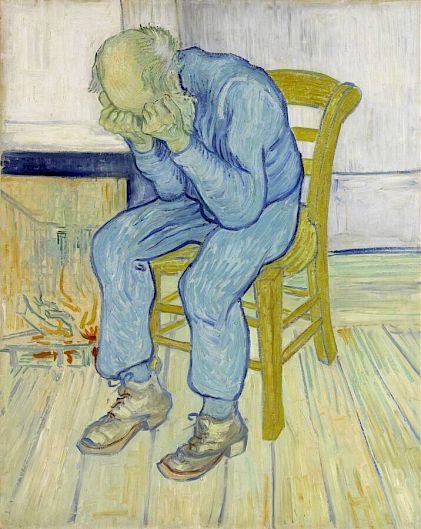What We're Reading This Week

Credit: Vincent Van Gogh’s (1890) Treurende oude man at the Kröller-Müller Museum
Cindy Ewing
James Robins, “Can historians be traumatized by history?” The New Republic
Despite the analytical dispassion with which historians are supposed to work, the violence and pain that historians confront in their intimate knowledge of their research mirror struggles that societies confront in moments of trauma.
Jon Davidann, “The myth of westernization,” Aeon
The nineteenth-century Japanese intellectual Fukuzawa Yukichi located himself within the confluence of Western and Japanese cultures, not out of imitation as some scholars have asserted, but out of an anticolonial and nationalist preservation of identity.
Zaka Toto, “When Martinique cannibalized colonialism,” Public Books
As mayor of Fort-de-France in Martinique, Aimé Césaire remade and retranslated a colonial-era monument into a living site for celebrating Black culture and artistic production.
Brenda Gayle Plummer, “For generations, African Americans have led global antiracist movements,” The Washington Post
The current moment of anti-racist protest in the United States sits in a long and global history of opposition to racial domination and colonialism outside its borders.
Julia Klimova
Susie Linfield, “When genocide is caught on film,” The New York Times
A book review of “The ravine: A family, a photograph, a holocaust massacre revealed” by Wendy Lower.
Jo Glanville, “A gift for Holocaust deniers’: How Polish libel ruling will hit historians,” The Guardian
The authors of a two-volume history on the fate of Jews in Nazi-occupied Poland apologize to a woman for defaming her uncle. Jo Glanville explores its implications on the further study of the Holocaust.
Michele A. Berdy, “The language of UnFreedom from the Gulag,” The Moscow Times
Michele Berdy reviews a new exhibition dedicated to a recently published dictionary of camp slang at the GULAG museum in Moscow.
Todd L. Pittinsky, “Hitler this, Hitler that,” The Times of Israel
Todd Pittinsky discusses problems with Holocaust analogies in current US politics.
Nelly Bekus, “Historical memory and symbolism in the Belarusian protests,” Cultures and History Forum
Nelly Bekus explores the politics of symbolism and cultural memory behind the current Belarusian protests.
Rustam Khan
Brian Hioe, “Who are the Chinese ‘left’ nationalists? This Chinese intellectual clique has demonstrated a strong interest in the work of Nazi thinkers,” Lausan HK
An intellectual history of the rise of Chinese 'left nationalists' in Lausan HK.
Adam Shatz, “Dynamo current, feet, fists, salt,” London Review of Books
London Review of Books on the history and memory of the Algerian war of liberation in France and abroad.
Jake Bittle, “Annals of annihilation: The climate crisis according to The New Yorker,” The Baffler
The Baffler on the global representation of climate crisis.